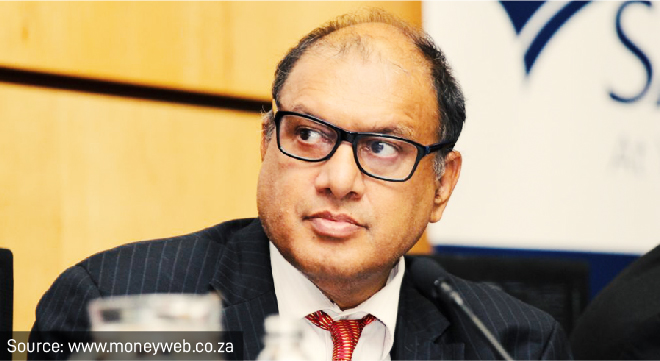National Treasury’s acting director-general, Ismail Momoniat, says mechanisms need to be put in place to ensure that the regulators are doing their job in respect of suspicious financial transactions, noting that Treasury does not have oversight of such reports.
Momoniat was responding to a question by DA MP Dennis Ryder during a briefing to the National Council of Province’s Select Committee on Finance earlier this month.
The committee heard Treasury’s input on the Financial Sector and Deposit Insurance Levies Bill and the Financial Sector and Deposit Insurance Levies (Administration) and Deposit Insurance Premiums Bill.
Ryder said although there were benefits to financial sector regulation, the cost of compliance was making financial services more expensive for consumers.
He said passing on higher costs to consumers was particularly problematic in an environment in which there was a deficit of trust in the financial sector regulators.
Consumers and businesses were “furious” when their accounts were blocked and they experienced other issues related to complying with the Financial Intelligence Centre Act, Ryder said. Then, for example, they read a media report (quoting from a Prudential Authority press release) that there were 8 388 clients at one bank whose citizenship was unknown and 1 782 clients whose country of incorporation was unknown.
He said that because it was not mentioned that the clients’ bank accounts had been frozen, the impression was created that there were different standards for different people.
Many South Africans were asking why the Financial Intelligence Centre (FIC) had not detected the transactions exposed by the Zondo Commission and had not stopped the money from being laundered, Ryder said.
Suspicious transaction reports are confidential
Momoniat told the committee that the points raised by Ryder were very important.
He said the banks did provide information “on lots” of suspicious transactions.
When giving evidence to the Zondo Commission, he had said that most banks did report suspicious transactions, except for one or two banks “that were literally in bed with the Guptas”.
Momoniat told MPs that the FIC did receive more than enough reports, but the question was, what did the FIC do with those reports? Treasury does not see those reports because they are confidential, “so the FIC doesn’t tell us, we have a suspicious transaction record from this bank on this matter”.
The only reports Treasury knew of were the ones leaked by former South African Revenue Service commissioner Tom Moyane relating to the Jonas Makwakwa matter and whatever has emerged in the courts, he said.
Momoniat said the “bigger question” was whether the FIC was doing its work and the prosecuting or investigating authorities were not acting on that information, or whether the FIC was failing to provide the information.
“Those are hard questions. We need to find a mechanism to check that, because the info is confidential, so it’s hard to know who’s performing and who’s not performing. And once it gets to the investigating authorities, no one can interfere with the cases, so we simply don’t know.
“But society does need to know, and how it gets to know … we need to look at mechanisms, and some of the proposals that have come on, like with the Nugent Commission, is to look at an inspector-general and so on coming in in such instances and playing a role,” he said.
“The question that Honourable Ryder is asking […] is a pretty deep question and does need to be answered. We set up all these regulatory authorities, and are they doing what we expect them to do? And if they’re not doing what they’re expected to do, how do we hold them accountable and take steps? So, I can’t answer specific questions, because I simply don’t know the answer, but just to record that those are issues.”
Levies legislation
In its presentation to the Select Committee in respect of the two pieces of legislation, Treasury disclosed the same information as it did when it briefed the National Assembly’s Standing Committee on Finance in February.
Read: FSCA’s forecast income for 2022/23 will leave it with a shortfall
Read: Deposit insurance will cost R14 per depositor, says Treasury
The Select Committee was also briefed on the proposed amendments to the Financial Sector and Deposit Insurance Levies Bill, which will reduce some of the levies that FSPs will pay to the FSCA.



